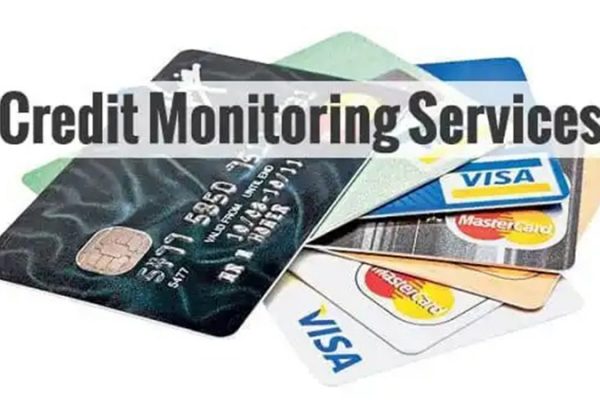
Over the past 25 Years, the FICO Score has become the most widely used Credit Tool for Lenders when looking at a persons credit profile. The Scoring system has been evolving over time and has been updated numerous times over its lifetime. What was once considered Below Average Credit may now be deemed satisfactory due to such changes. But did you know that there are over 20 variations of your FICO Score?
 Below is the MOST RECENT FICO Score Models used by the Major Lenders Today:
Below is the MOST RECENT FICO Score Models used by the Major Lenders Today:
| Experian | Equifax | TransUnion |
| Most widely used version | ||
| FICO® Score 8 | FICO® Score 8 | FICO® Score 8 |
| Versions used in auto lending | ||
| FICO® Auto Score 8 FICO® Auto Score 2 |
FICO® Auto Score 8 FICO® Auto Score 5 |
FICO® Auto Score 8 FICO® Auto Score 4 |
| Versions used in credit card decisioning | ||
| FICO® Bankcard Score 8 FICO® Score 3 FICO® Bankcard Score 2 |
FICO® Bankcard Score 8 FICO® Bankcard Score 5 |
FICO® Bankcard Score 8 FICO® Bankcard Score 4 |
| Versions used in mortgage lending | ||
| FICO® Score 2 | FICO® Score 5 | FICO® Score 4 |
| Newly released version | ||
| FICO® Score 9 FICO® Auto Score 9 FICO® Bankcard Score 9 |
FICO® Score 9 FICO® Auto Score 9 FICO® Bankcard Score 9 |
FICO® Score 9 FICO® Auto Score 9 FICO® Bankcard Score 9 |
Why so many FICO Scores and how do Lenders us the FICO Score.
Lenders can choose what version of the FICO Score they feel is most reliable to their particular credit profile. As you can see from the chart above there are various models for different Credit requests. For example, if you’re looking to purchase a car then the dealership that you are working with would most likely use the FICO Auto Score. Now, what Version (2,4,5,8,9) is completely up to that Dealership or their participating lender. Some hold true for the other variations of the FICO scoring system related to Auto, Bankcard and Mortgage Lending.
How is FICO® Score 8 different from previous versions?
- High credit card usage
Though all FICO® Score versions consider high credit card utilization to be reflective of higher risk, FICO Score 8 is more sensitive to highly utilized credit cards. So if a credit report shows a high balance close to the card’s limit, FICO Score 8 will likely be more impacted than a previous score version.
Keeping credit card balances low can help maintain or improve the score.
- Isolated late payments
If a lender reports to the credit bureau that you were at least 30 days late with your payment, it will likely result in a loss of points within all FICO® Score versions. If the late payment is an isolated event and other accounts are in good standing, FICO Score 8 is more forgiving compared to previous FICO Score versions.
However, if the credit report shows numerous late payments, the reverse is true and the FICO® Score 8 will likely lose more points as compared to previous FICO Score versions.
- Authorized user of credit card
All FICO® Score versions include authorized user credit card accounts when calculating a FICO score. This can help people benefit from their shared management of a credit card account. It also helps lenders by providing credit scores that are based on a full snapshot of the consumer’s credit history.
Introducing FICO® Score 9 – the most predictive FICO Score to date
Many lenders have already upgraded, or are in the process of upgrading, to FICO® Score 9. It’s our newest FICO Score version, and it has important updates that make it the most predictive FICO Score yet.
- Third-party collections that have been paid off no longer have a negative impact.
- Medical collections are treated differently than other types of debt. Unpaid medical collections will have less of a negative impact on FICO® Score 9.
- Rental history, when it’s reported, factors into the score? this may be especially beneficial for people with a limited credit history.
What’s the difference between base FICO® Scores and industry-specific FICO® Scores?
Base FICO® Scores, such as FICO Score 8, are designed to predict the likelihood of not paying as agreed in the future on any credit obligation, whether it’s a mortgage, credit card, student loan or other credit product.
Industry-specific FICO® Scores incorporate the predictive power of base FICO Scores while also providing lenders a further-refined credit risk assessment tailored to the type of credit the consumer is seeking. For example, auto lenders and credit card issuers may use a FICO Auto Score or a FICO Bankcard Score, respectively, instead of base FICO Scores.
FICO® Auto Scores and FICO Bankcard Scores have these aspects in common:
- Many lenders may use these scores instead of the base FICO® Score.
- It is up to each lender to determine which credit score they will use and what other financial information they will consider in their credit review process.
- The versions range from 250-900 (compared to 300-850 for base FICO® Scores) and higher scores continue to equate to lower risk.
Which FICO® Score version is important to me?
Consider these guidelines:
Financing a new car? You’ll likely want to know your FICO® Auto Scores, the industry-specific scores used in the majority of auto financing-related credit evaluations.
Applying for a credit card? You’ll likely want to know your FICO® Bankcard Scores or FICO Score 8, the score versions used by many credit card issuers.
Purchasing a home or refinancing an existing mortgage? You’ll likely want to know the base FICO® Score versions previous to FICO Score 8, as these are the scores used in the majority of mortgage-related credit evaluations.
For other types of credit, such as personal loans, student loans, and retail credit, you’ll likely want to know your FICO® Score 8, which is the score most widely used by lenders.
Learn More about your FICO Score and other Facts at www.CreditScoresandMore.com



